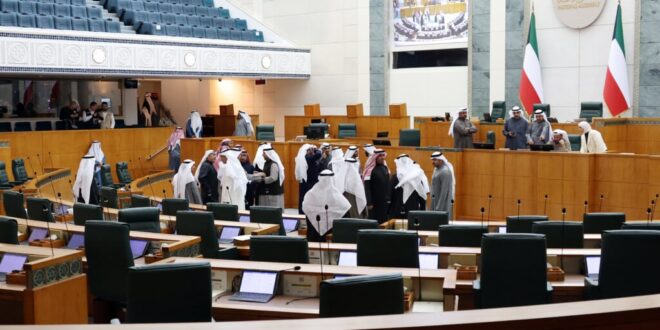Installing democracy in a society without a tradition of liberty is like handing car keys to an unlicensed driver
Kuwait’s unprecedented suspension of its constitution has marked the end of an era of change that started with the toppling of Iraq’s Saddam Hussein in 2003 and that was followed by the ejection of Syria’s Bashar from Lebanon in 2005. In 2011, a series of revolutions broke out and decapitated the regimes in Tunisia, Libya, Egypt and Yemen. Those revolutions came to be known as the Arab Spring.
All Arab countries that witnessed change between 2004 and 2011 saw Islamists climb the ladder of democratic election to take over government – after which in most cases they succeeded in pushing away the ladder to stay in power indefinitely and reshape the state in their image, mainly through social engineering. Tunisia and Egypt managed to escape the Islamist trap. On Friday, Kuwait, too, trounced its Islamists – and with them its parliamentary system.
After the US led Kuwait’s liberation from Saddam Hussein’s army, in 1991, the Sabah family transformed the country from an emirate to a state. The social contract was renegotiated, and a hybrid system emerged that allowed for a free press and the democratic election of the National Assembly but kept the last word for the emir. Kuwait came close to being a constitutional monarchy.
For a myriad of reasons, the Kuwaiti democracy meant endless bickering and a paralyzing stalemate, forcing the emir to dissolve the National Assembly and call for early elections at an unusually high frequency, sometimes twice a year. Every time Kuwait elected its representatives and formed a cabinet, the gridlock returned.
Kuwait has among the largest oil reserves in the world. With a population of a million or so, it was expected to compete with Dubai and Abu Dhabi in terms of growth and attraction. Yet, the democratic gridlock inhibited growth, and the once-shiny Kuwait City became shabby and backward compared with its oil-rich peers.
One of the main problems of the Kuwaiti democracy was its Muslim Brotherhood, whose lawmakers undermined the government at every turn.
Operating under the name Social Reform Organization, Kuwait’s Islamists have no government program beyond social engineering. They raised hell over Kuwait’s decades-old gender-mixed marathon race. Every year, they make a fuss about the Christmas tree at Kuwait City’s main mall – the Avenues. When the US ambassador to Kuwait wished Jews a happy Hannukah, the Islamists launched a social media storm, demanding the expulsion of the ambassador, unaware that statements of sovereign ambassadors could not be bound by Kuwaiti preferences.
Kuwaiti Islamists have been so dominating of public life that they won Kuwait City the epithet “Kandahar on the Gulf,” after the Afghani city that is known for being a hotbed of Islamist radicals.
On Friday the country’s emir, Sheikh Mishal Al-Sabah, not only dissolved the National Assembly; he also disbanded it by suspending some articles of the constitution. The emir promised to fix the system and restore it within four years.
While everyone hopes Sheikh Mishal will succeed, people are not holding their breath waiting for the speedy return of democracy now that it has become synonymous with Islamist tyranny.
What went wrong? How could change in seven Arab countries transform autocracy into Islamist tyranny? In Iraq we blamed America. In Lebanon we thought it was Iran. But in Tunisia and Kuwait there has been no foreign intervention whatsoever.
The answer, in all seven Arab democracy experiments, is that there are essential prerequisites for democracy that have not been fulfilled yet – first and foremost the spread of liberty.
Installing a democracy in a society without a tradition of liberty is like allowing an unlicensed driver to take a car for a spin. Chances of crash are high.
The failure of democracy in Arab lands is not a denunciation of democracy itself, which remains the best system that unleashes the most creativity, and therefore economic growth. However, the Arab majority has little to be unleashed and a lot to be learned.
Ask any average Arab today about their favorite system of government and they will answer, without hesitation, that Arab monarchies have fared better than elected governments. With Saudi Arabia, the United Arab Emirates and Bahrain racing to transform their economies into knowledge-based ones, liberal economics might help anchor liberty.
Economic growth creates groups of citizens with vested interests in maintaining peace and the rule of law. From there on, liberal democracy stands a chance. Such has been the path to democracy in South Korea, even though each country is different.
This is the lesson we did not learn in Iraq. We assumed that knocking out the regime and allowing Iraqis space, coupled with their enormous oil rent, would transform the country into a democracy. Instead, the vacuum was filled by Islamism and a democracy emerged – but a non-liberal one, an Islamist democracy where elections are held routinely but the rule of law is always absent.
 Eurasia Press & News
Eurasia Press & News


